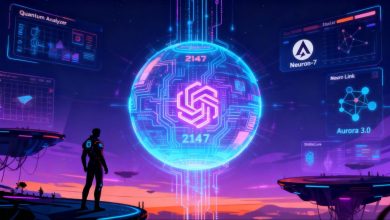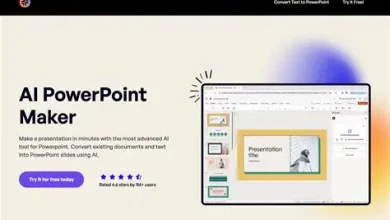
AI raises a lot of problems for authorship–but the problems aren’t what most people think. The conclusion that knowledge or creativity can be owned is deadly to knowledge and culture, as is the assertion that one can own a book but can’t learn from it without paying an additional fee. It makes little difference whether the “learner” is a machine or a human.
But there’s something that we don’t want to lose, and that’s the author’s voice. That author’s voice is many things: the way they write, the words and phrases they use, the years of experience that goes into their writing. On the Live with Tim O’Reilly podcast, Chelsea Troy said that authors are “taking two to three decades of mistakes that they have made and condensing that into a useful, legible package for you to not make any of those 20 years of mistakes.” We value that experience and voice–whether we’re talking about fiction, academic books, or technical prose. That voice is threatened by AI: if, instead of engaging with authors, people engage with the anonymous voice that comes out of applications like ChatGPT or Claude, they will lose the context, the background. They’ll be presented with a simple “solution” stripped of experience.
I don’t deny that the voices of models like GPT, Claude, or Gemini are human-like and engaging; they can even be clever, sarcastic, or caring. I also don’t deny that the creation of models that can generate authentic natural language is the greatest technological breakthrough of the first quarter of the 20th century. But there is something missing–and that’s the voice of the author that went into a model’s output. A language model can tell you what someone said–but it can’t tell you why they said it. It can’t give you the deep backstory that’s behind the statement, a backstory that may never have been published or even written down.
If someone wants to understand software architecture, they want the voice of working software architects: Neal Ford, Mark Richards, or one of many other writers. Each of them has a unique point of view about how to do things right that underlies their technical ability. You want the years of experience they have developed solving problems in software engineering.You want the solutions they’ve reached when solving the problems you’re facing. You don’t want an anonymous composite that mixes thousands of voices and experiences together.
This isn’t to say that AI isn’t useful. But it is to say that attribution is critically important: when AI generates an answer, it needs to show the original source that the answer came from. That’s the only way for an AI user to get back to the author’s voice. It also makes it possible for a user to check the AI’s output, to see whether it has distorted the source text in subtle ways. Important as it is, few AIs that provide attribution. Google’s AI Overview and O’Reilly Answers are exceptions. I find the ability to go directly from the summary to the material that was summarized to be a breath of fresh air. Attribution also makes it possible to compensate authors whose material was used to compose an answer: there is a clear connection between the answer and the source.
Insisting on attribution is important because it is important to treat authors well. They must be compensated fairly. But it goes deeper than that. Why do authors write? It isn’t just about money. Most books generate income, but let’s be honest: in technical publishing, most authors could easily command salaries or consulting fees that are much larger than any royalties they’re likely to receive. Books require a lot of effort, and that royalties are likely to compare poorly to a Google, Meta, or OpenAI salary. But there is no shortage of authors. Why?
Because voice is important. Authors have something they want to say, and they want their voice to be heard. In technical publishing, many authors only write a single book, on a single topic that they care passionately about. They aren’t like novelists, who can produce a dozen or more books in their lifetime. (I’m writing this in my local public library, sitting in the fiction section, and I count 51 books on the shelves by Clive Cussler; 31 by Stephen King.) They’re writing for their communities; they’re writing to get the story out; they’re writing for recognition. That part of the equation is especially important for consultants, for whom a book is a great addition to their resumes. But to some extent it’s true for everyone. Authors want to be recognized for contributing to a body of knowledge. That recognition can’t happen if their words become anonymized output from an answer-generating machine.
Whether it’s money or recognition, authors want something back. If there is no return–if the experts who create content get neither money or recognition–then there’s no incentive to create anything new. When we need a new book to help us understand Quantum AI, high performance numeric programming in Zig, or even the newest trend in Artificial Intelligence, the authors won’t be there. Of course, there will be experts who know this material intimately. But there won’t be any incentive for them to write or teach.
We need authors’ voices. We need people speaking and writing to us. Good as it may be (or may become), the anonymized output of a language model isn’t an acceptable alternative.





